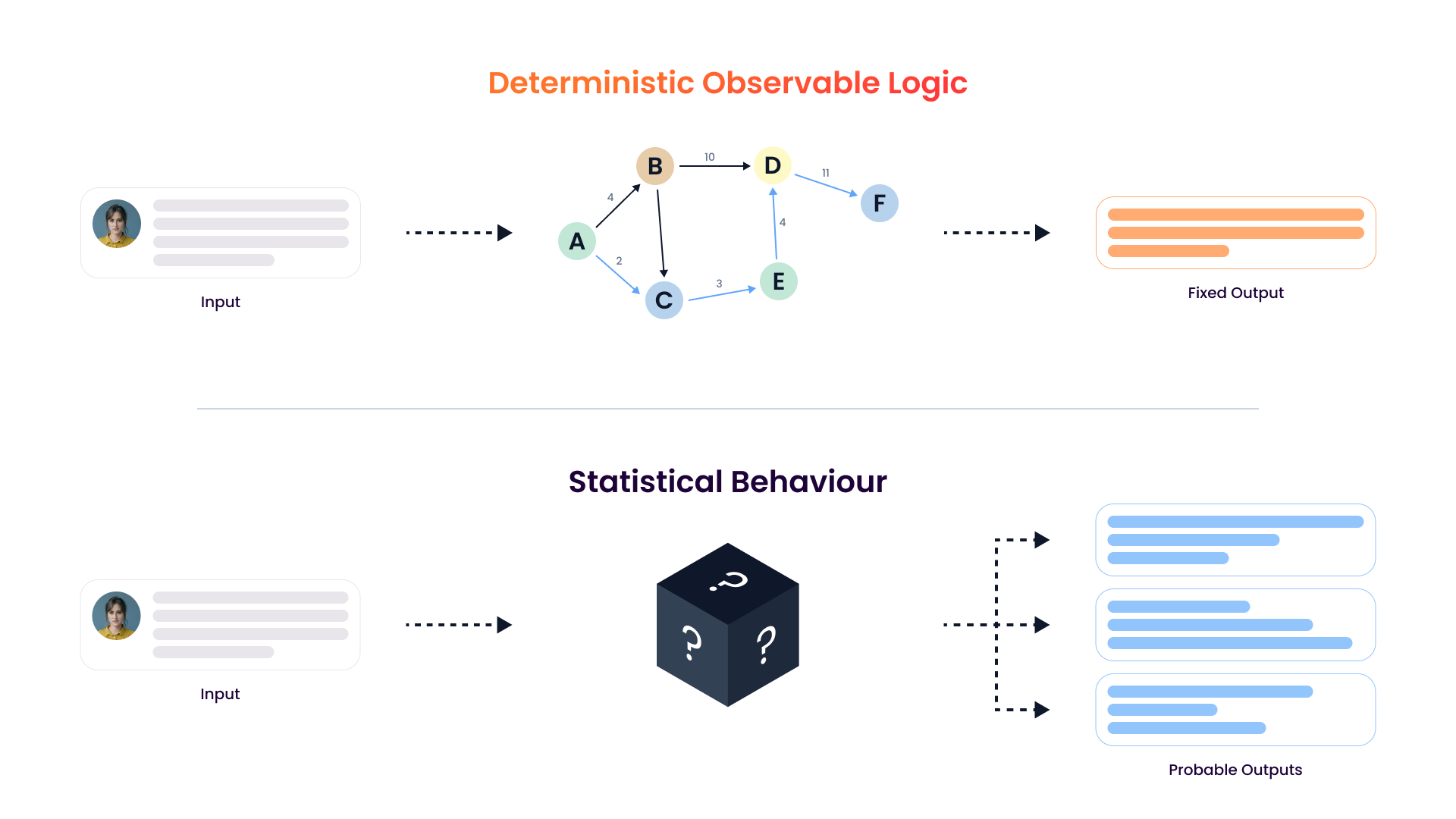There are several approaches for different AIs While some adopt a probabilistic approach, others, known as deterministic, offer reproducible results for the same input data. This article therefore explores the concept of determinism in AI, its importance and its various use cases.
What is determinism in AI ?
A deterministic algorithm is designed to systematically produce the same result for a given set of inputs. This means that, for each execution, the algorithm follows a fixed sequence of instructions, without variation. This predictability makes it particularly useful for decisions where conformity and stability are essential, such as in finance or insurance, where every step must be traceable to guarantee transparency.
Conversely, non-deterministic algorithms, such as Monte-Carloor generative AIs, explore several possible execution paths, introducing a degree of variability even with identical inputs. This approach is invaluable in complex contexts where adaptability is paramount, such as optimization or machine learning, where an approximate solution is preferred to a strictly predictable answer.
As well as being reproducible, deterministic algorithms are also capable of providing solutions in polynomial time. This optimizes computation time and resources. Non-deterministic algorithms, on the other hand, may require exponential time for certain resolutions, due to the exploration of multiple possible paths, making them more demanding in terms of resources.

Advantages and drawbacks of Deterministic AI
Deterministic AI systems, through their ability to produce reproducible and explainable results, have many advantages:
Without hallucinations or bias : Deterministic AI can help reduce decision-making bias by applying objective, immutable rules. This is particularly important in human resources and recruitment, where standardized decisions enable each candidate to be assessed fairly. Deterministic CRM systems, by offering an identical service to all users, can also reduce bias.
Strengthening compliance By systematically applying the same rules, deterministic AI facilitates compliance with regulations, particularly in sectors subject to rigorous standards such as finance and insurance. Decisions taken are fully traceable and verifiable, helping companies to respond to audits and ensure compliance.
Optimizing resources : Following a predefined sequence of instructions, deterministic algorithms consume fewer resources, as they exploit only one solution at a time. This saves computing power and optimizes infrastructure, while guaranteeing fast, consistent decisions.
Reliability in emergency situations : In contexts requiring immediate reactivity, such as warning systems or risk management, determinism enables decisions to be taken without delay. This enables companies to respond effectively to emergencies, guaranteeing security and rapidity in their operations.
However, despite these many obvious advantages, deterministic AIs have limitations in terms of adaptability and ability to evolve with highly dynamic environments.
Lack of automatic adaptation Unlike machine learning models, which can improve with new data, deterministic AI does not evolve on its own. Any updates or adaptations have to be made manually, which can hamper the system's ability to adapt quickly to new needs or changes in user behavior.
Dependence on input data Deterministic AIs require a deep understanding of the domain in order to create reliable rules. This means they are highly dependent on the quality of the knowledge integrated at the outset, with no possibility of enriching themselves with new information in real time. This can limit their effectiveness if the domain evolves rapidly or new use cases emerge.
Nevertheless, these limits can be overcome thanks to the emergence of theneuro-symbolic AI (an article on this subject will be published shortly), which combines the rigor of deterministic algorithms with the flexibility of machine learning models, offering a promising solution for businesses.
At the end of the day, determinism in AI represents an essential asset for companies that value transparency and stability, and with practical applications that profoundly transform corporate operational processes.


